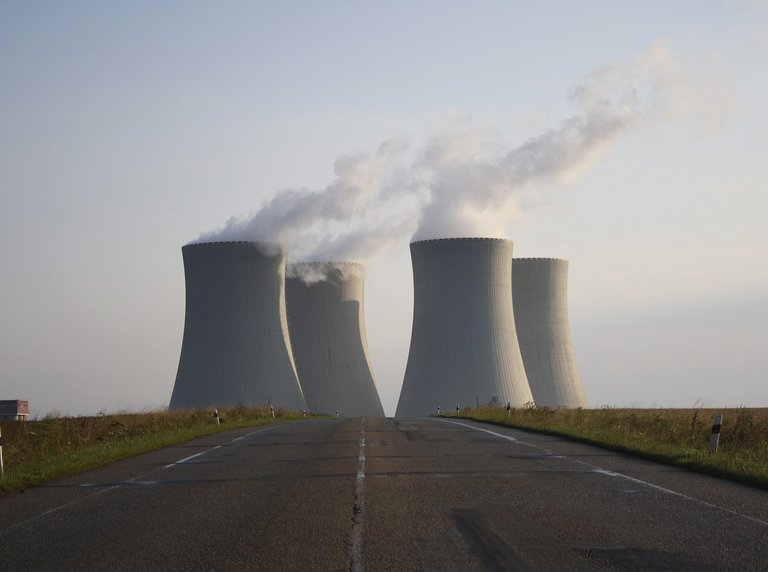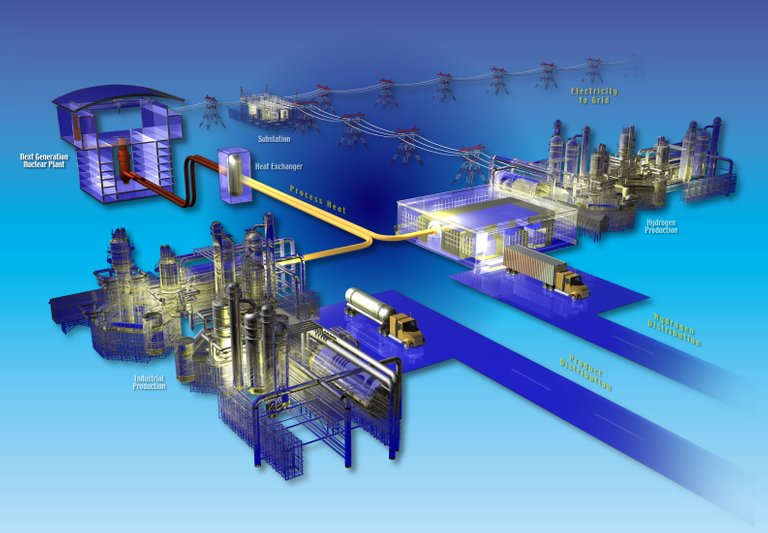I was reading a blog post, then I realized that African countries like Algeria, Egypt, Ghana, Libya, Morocco, Nigeria, and South Africa, have operational nuclear research reactors but also it is no lie that nuclear energy creates an uneasy feeling of danger because of the type of power being produced. An escape of nuclear elements can lead to horrible accidents killing a lot of people but then how does this happen?
Nuclear energy, although just became a thing of concentration has been a thing since 1951, and since that date till today, there have been numerous nuclear accidents that have created minor accidents but there have been two incidents that we are familiar with which came creating havoc. They are Fukushima Daiichi in Japan and Chernobyl in Ukraine with the Chernobyl incident in 1986 being a very disastrous one.
With the Ukraine accident, the RBMK-1000 reactor was old and ill-prepared for emergencies, also the government was slow and more concerned about saving their face than salvaging the damage, thereby killing about 31 people directly. Although 31 people died from the direct impact of the accident, nuclear energy accident gives more than a direct effect as it releases radiation which can cause cancer and other diseases. The European Green party says that about 60,000 people would have died prematurely by the incident in Chernobyl in 2060, but then the WHO says that the Chernobyl nuclear accident would cause a total of 4000 by 2060, while the United Nations Scientific Committee on the Effect of Atomic Radiation says it might be lesser than that. Fukushima Daiichi, Japan had its own share of nuclear accidents in 2011. The current death toll from this accident is 573 which was not directly from the accident, but from evacuation, and stress which occurred in the elderly.
Radiation from nuclear reactants can lead to cancer such as thyroid cancer in children, and 1 person from Japan nuclear accident died from radiation-induced lung cancer. Nuclear energy is responsible for death, and other forms of energy creation are responsible also for accidents and deaths. For instance, look at the case of the Banqiao, Dam in China where there was a failure in the Dam, destroying the Dam, and causing a death toll of about 80,000 and 200,000.
We will not also compare the death rate of these energy plants to that of fossil fuel. First, fossil fuel is responsible for the release of gases such as Sulfur dioxide, Carbon monoxide, and nitrogen dioxide into the atmosphere which would lead to the disruption of lung functions, causing conditions such as Asthma, and bronchitis, as well as other conditions such as heart attack, emphysema, and other cardiovascular diseases. They can still lead to lung cancer, stroke, and heart disease. We will not deny that fossil fuel pollution is the number 1 cause of environmental-related death in the world accounting for about 29% of all cases of lung cancer, 23% of death from acute lower respiratory infection, 24 % from stroke, 37% from Ischemic heart disease, and 11% from C.O.P.D by the WHO.
In comparison to all these death rates, a study still showed that nuclear energy is the least when it comes to death tolls and just as safe as Wind and Solar. A lot of countries have been shutting down their nuclear plants and focusing on fossil fuel burning for energy but then, we still have climate change to tackle. In other to tackle climate change, we need to bring greenhouse gas emissions to net zero. about 2/3 of the world's energy is released through fossil fuel burning meaning that we solely depend on coal, oil, and gas to satisfy our energy consumption. Compared to fossil fuel, nuclear energy although not renewable releases a tiny amount of gas emission.
While we cannot say that nuclear energy has caused lots of death compared to fossil fuel, we should also consider that its waste and a possible accident can lead to death. Renewables are no doubt the future of energy but there are a lot of hurdles to overcome.
Reference
- https://www.nirs.org/press/04-11-2006/
- https://www.who.int/news/item/05-09-2005-chernobyl-the-true-scale-of-the-accident
- https://world-nuclear.org/information-library/current-and-future-generation/outline-history-of-nuclear-energy.aspx
- https://www.ncbi.nlm.nih.gov/pmc/articles/PMC7155967/
- https://www-pub.iaea.org/MTCD/Publications/PDF/Pub1312_web.pdf
- https://www.nature.com/articles/440982a
- https://www.who.int/news-room
- https://www.who.int/news/item/02-05-2018-9-out-of-10-people-worldwide-breathe-polluted-air-but-more-countries-are-taking-action
- https://www.ncbi.nlm.nih.gov/pmc/articles/PMC5836577/
- https://www.engineering.com/story/whats-the-death-toll-of-nuclear-vs-other-energy-sources
- https://energsustainsoc.biomedcentral.com/articles/10.1186/2192-0567-2-15
- https://www.ucsusa.org/resources/barriers-renewable-energy-technologies
- https://www.iea.org/reports/renewable-energy-market-update/challenges-and-opportunities-beyond-2021

Hi, I am Tobi a writer, speaker, relationship blogger, and lover of good music. I love making friends and learning from people. Want to hear me speak on relationships and general life issues, you can find my youtube channel where you can listen and watch any episode for free, please do not forget to subscribe, friends. I sincerely appreciate every love I get from here, kindly do well to keep them coming.


Nice piece of information
Well nuclear power gives you energy and power(in terms fire power). Fossil fuel will end later or sooner renewable energy is future. 👍🏻
Exactly. The fire power is why so many world powers are against countries with reactors and plants.
Renewal energy is the best. I hope we overcome these hurdles soon!
Actually, why renewable energy is the best currently, nuclear energy has recorded less death rate amongst all types of energy sources, so I wonder why a lot of countries are closing down their plants, possible because of greenhouse emissions which is less compared to fossil fuel.
Thanks for your contribution to the STEMsocial community. Feel free to join us on discord to get to know the rest of us!
Please consider delegating to the @stemsocial account (85% of the curation rewards are returned).
Thanks for including @stemsocial as a beneficiary, which gives you stronger support.
Nuclear power-- even it the form of fission-- offers the greatest potential for humanity than any other form which is not related to fossil fuels.
Its greatest vulnerabilities lie in waste disposal and accidents. When the accidents happen, they are devastating. The surprise is that there haven't been more accidents since 1945.
On the bright side, nuclear power is also a proven technology which has stood the test of time. Let's remember the number of ships which use nuclear reactors for their power: not just submarines from several nations and American aircraft carriers, but also icebreakers used first by the USSR and then Russia. It's a wonder that environmental harm from these nuclear-powered vessels is nearly minimal compared to that for land-based reactors.